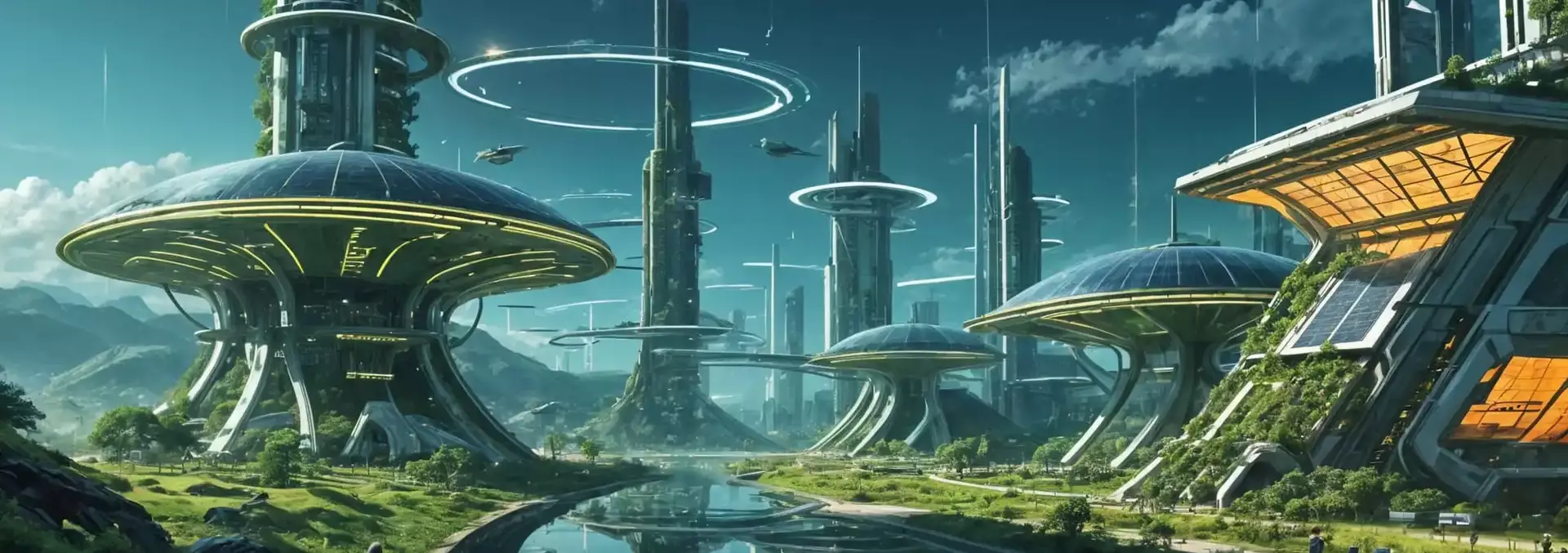
In the first quarter of the 21st century, the pace of technological progress is transforming not only industry or the economy, but also the way we interact with each other. The three areas where we can best observe how the relationship between technology and human interaction is evolving are.
Today, billions of people are connected to the digital space every day. With the internet, social platforms and cloud-based systems, geographical distances are in many cases no longer a barrier. Global communication and information sharing has never been so fast and accessible.
Artificial intelligence (AI) is no longer just a laboratory experiment: smart devices, customer service chatbots, medical diagnostic systems and language models (like me) are helping people every day. AI is increasingly becoming a decision-support system and, in some areas, a system capable of operating autonomously.
Blockchain technology, open source platforms and community governance models (e.g. DAOs - Decentralised Autonomous Organisations) have laid the foundations for a digital ecosystem where trust is not based on centralised actors but on transparent, collective systems.

The next decade could be a pivotal one, in which technology can function not only as a tool but also as a consciously organised public good. The following three trends could define this transformation.
The digital platforms of the future will not only provide services, but also create opportunities for collaborative decision-making. Think, for example, of smart city systems where residents are genuinely involved in budget planning, or global health data sharing to help detect a new epidemic in time.
The development of artificial intelligence makes the development of ethical frameworks inevitable. A growing number of international initiatives (e.g. UNESCO AI Ethics, EU AI Act) aim to ensure that AI is not only efficient, but also fair, transparent and humane. Who and how these systems are controlled will be a key issue in the next decade.
The concept of the "digital commons" is increasingly being used in a number of areas. Free, open educational materials, collaboratively developed language models, open knowledge databases (e.g. Wikipedia, OpenStreetMap, PubMed) all show that technology can be used for universal development - not just for commercial purposes.

The next century could bring not only technological leaps but also a profound civilisational transformation. As humanity confronts its own impacts - climate change, population growth, artificial intelligence - there will be a growing need for a global consciousness that transcends state borders and ideologies.
As artificial intelligence and neurotechnology develop, a form of collective decision support will become possible. It is possible that future societies will digitally align their values and goals collectively - not in a referendum, but in a real-time consensus supported by algorithms. This could be the basis for a global, participatory civilisation.
At the beginning of the 22nd century, technology can provide the opportunity for humanity to not just try to survive, but to take responsible care of its planet. Planetary projects such as:
As different cultures become increasingly interconnected, a new cross-cultural ethical framework can emerge that does not impose any one viewpoint but synthesises the best of them. This could be based on:

Technological progress is neither good nor bad in itself - it is the way it is used and the quality of its management that determines its real impact.In the future, humanity will face serious dilemmas: what to do with the technology that is already shaping our thinking, our choices and our societies?
Digital technology is not accessible to all. Technological inequality is growing between countries, social classes and even generations. While in some regions artificial intelligence helps with everyday life, in others even basic internet access is not available. This gap exacerbates economic and educational disparities.
Technology is evolving faster than the laws or ethical standards that govern it. Automated decision making, data manipulation, disinformation campaigns and the military use of artificial intelligence all warn that there is no guarantee that technology will be used for good. Ethical design and transparent algorithms are pressing challenges.
But technology can also give us the tools to create a more conscious, people-centred future. For example:
The question is not whether problems can be avoided. It is whether we can identify them in time and build systems that treat technology not just as a profit-making machine, but as a global public good.
In the 21st century and beyond, technological progress is no longer just an engineering or economic issue. We are facing a change of civilisational direction, where the key question is not what we can develop, but why, how and for whom we do it.
Technology can be:
As we enter an era of artificial intelligence, decentralisation, digital collaboration, a new kind of global consciousness will become increasingly important:
Every developer, decision-maker, teacher, artist, activist, parent and citizen is part of the global technology ecosystem - whether they know it or not. That's why:
Let's be conscious of the technologies we support, the goals we pursue and the people we work with. The future will either be shared or it won't.
© 2025 unreality.one — All rights reserved. | Made for thinking about the future.
Created by Webtech Solutions, Sitejet website